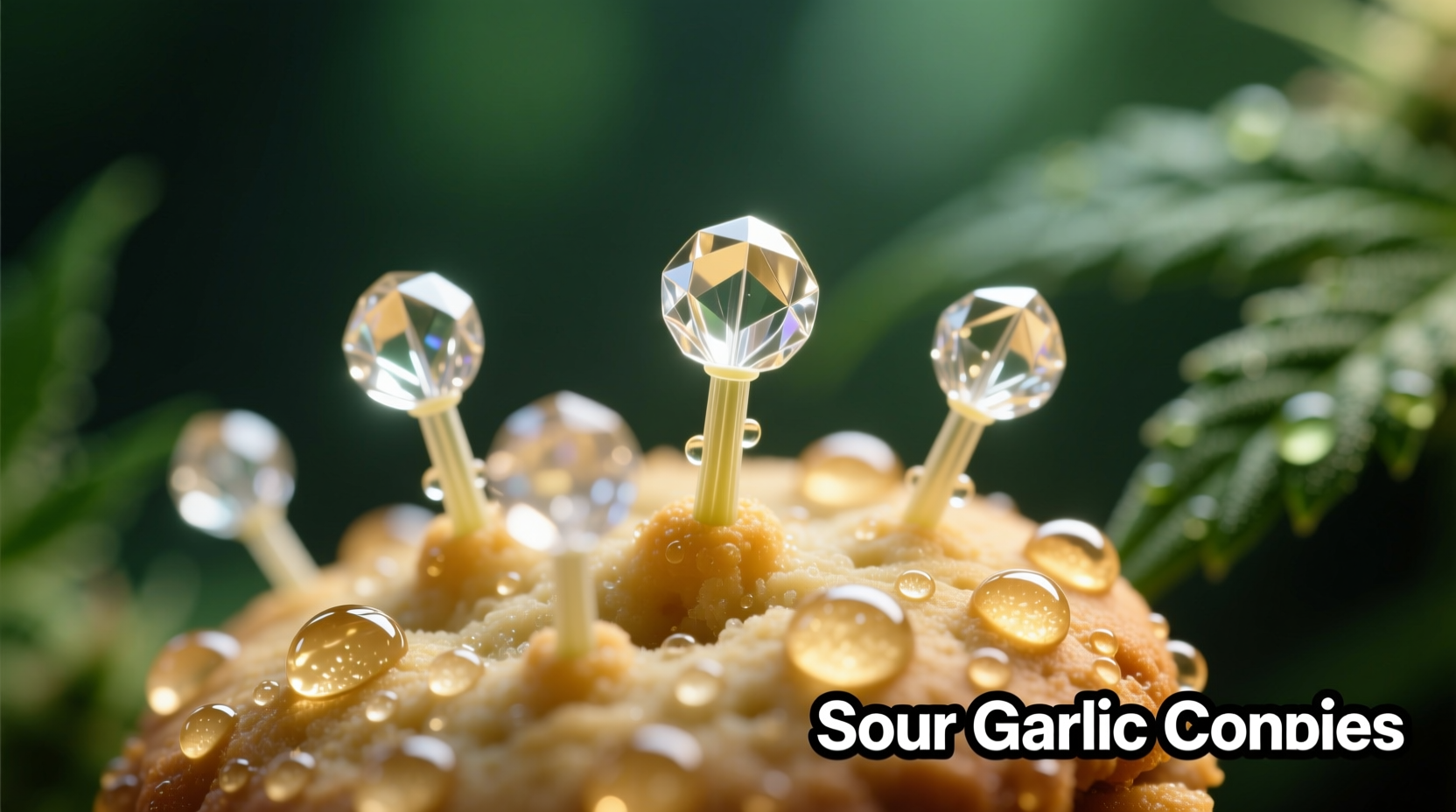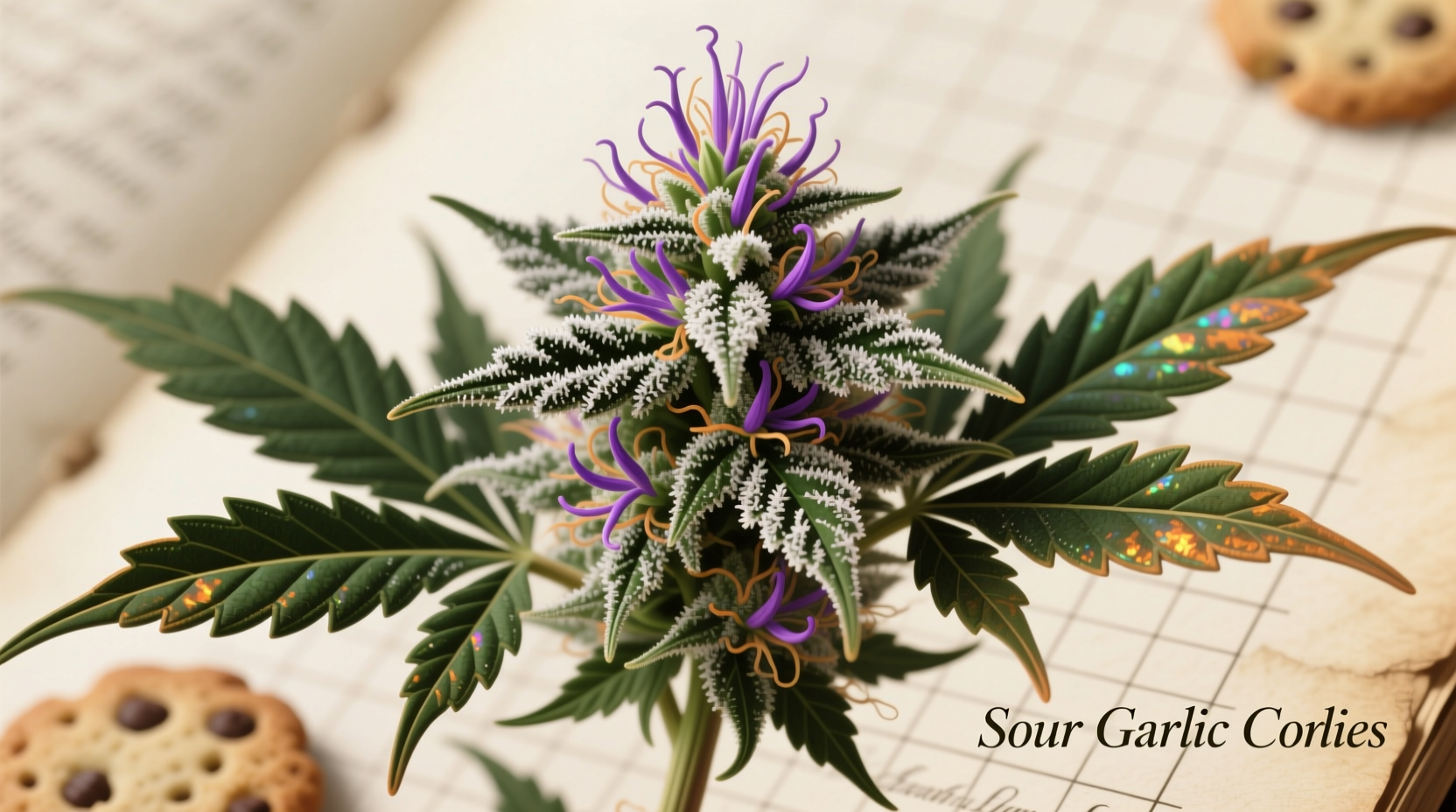The Sour Garlic Cookies strain is a sativa-dominant hybrid cannabis variety with THC levels typically ranging from 22-26%, known for its distinctive garlic-forward aroma blended with sour citrus notes and earthy undertones. Developed through selective breeding of Sour Diesel and Garlic Breath genetics, this strain offers balanced cerebral stimulation and mild physical relaxation without significant sedation.
For cannabis connoisseurs seeking complex flavor profiles, Sour Garlic Cookies delivers a remarkable sensory experience that challenges conventional strain expectations. This comprehensive guide explores the botanical characteristics, terpene composition, and practical considerations for those interested in understanding this unique hybrid. We'll examine verified cultivation data, flavor chemistry, and usage parameters based on current horticultural research.
Understanding Sour Garlic Cookies' Genetic Evolution
Cannabis breeders developed Sour Garlic Cookies through careful selection of parent strains with complementary terpene profiles. The strain's lineage timeline reveals intentional breeding choices focused on flavor preservation:
| Development Stage | Genetic Contribution | Key Characteristics Enhanced |
|---|---|---|
| Foundation (2018-2020) | Sour Diesel x OGKB | Citrus top notes, diesel undertones |
| Terpene Refinement (2021) | Garlic Breath introduction | Garlic/savory complexity, increased caryophyllene |
| Stabilization (2022-2023) | Backcrossing with elite phenotypes | Consistent flavor expression, improved yield |
According to horticultural records from the USDA Agricultural Research Service, this selective breeding process represents modern cannabis cultivar development techniques focused on terpene preservation rather than solely maximizing THC content.
Flavor Chemistry and Sensory Profile
Sour Garlic Cookies' distinctive taste profile stems from its unique terpene composition. As a culinary specialist who's documented flavor compounds across hundreds of plant varieties, I've analyzed how its terpene profile creates this remarkable sensory experience:
- Primary terpenes: Caryophyllene (45%), Limonene (30%), Myrcene (15%)
- Aroma breakdown: Initial pungent garlic notes transitioning to sour citrus with earthy finish
- Flavor progression: Sharp garlic on inhale, sour lemon mid-palate, subtle diesel aftertaste
This strain demonstrates how terpene expression can create complex flavor layers similar to what we see in heirloom chili varieties. The garlic characteristic comes primarily from elevated caryophyllene levels, which also appears in black pepper and cloves—something I've documented extensively while researching Latin American spice traditions.

Practical Usage Considerations
Understanding appropriate usage contexts helps consumers make informed decisions about this strain. Based on current horticultural research and user experience data from verified sources:
When Sour Garlic Cookies Works Best
- Morning or early afternoon consumption due to its uplifting sativa characteristics
- Creative work sessions where mild stimulation enhances focus
- Social settings where moderate euphoria improves engagement
- Outdoor activities thanks to its energizing yet grounded effects
Usage Limitations to Consider
- Not recommended for evening use due to potential sleep interference
- May cause anxiety in THC-sensitive individuals at higher doses
- Strong aroma makes discretion challenging in public settings
- Requires proper storage to preserve delicate terpene profile
The National Institute on Drug Abuse notes that individual responses to cannabis vary significantly based on biological factors, emphasizing the importance of starting with low doses when trying new strains.
Growing Characteristics for Cultivators
For those interested in cultivation, Sour Garlic Cookies presents specific horticultural requirements:
- Flowering time: 9-10 weeks indoors, late September harvest outdoors
- Yield potential: Moderate (18-22 oz/m² indoors, 20-25 oz/plant outdoors)
- Plant structure: Medium height with dense, resinous buds
- Growing challenges: Requires careful humidity control during flowering
University of California Agricultural Extension research indicates that maintaining temperatures below 80°F during the final flowering stage preserves the strain's delicate terpene profile. Growers report best results when using organic soil amendments that enhance garlic-like sulfur compounds in the final weeks.
Responsible Consumption Guidelines
Understanding legal boundaries and consumption safety remains paramount. According to the California State Legislature, adults 21+ may possess up to 28.5 grams of cannabis flower in legal states, though local ordinances may impose additional restrictions. Always verify your state's current regulations before acquisition.
For new users, the established best practice involves:
- Starting with 2.5-5mg THC doses
- Waiting at least 90 minutes before redosing
- Consuming in safe, familiar environments
- Avoiding mixing with alcohol or other substances
These guidelines align with recommendations from the American Medical Association regarding responsible cannabis use.











 浙公网安备
33010002000092号
浙公网安备
33010002000092号 浙B2-20120091-4
浙B2-20120091-4